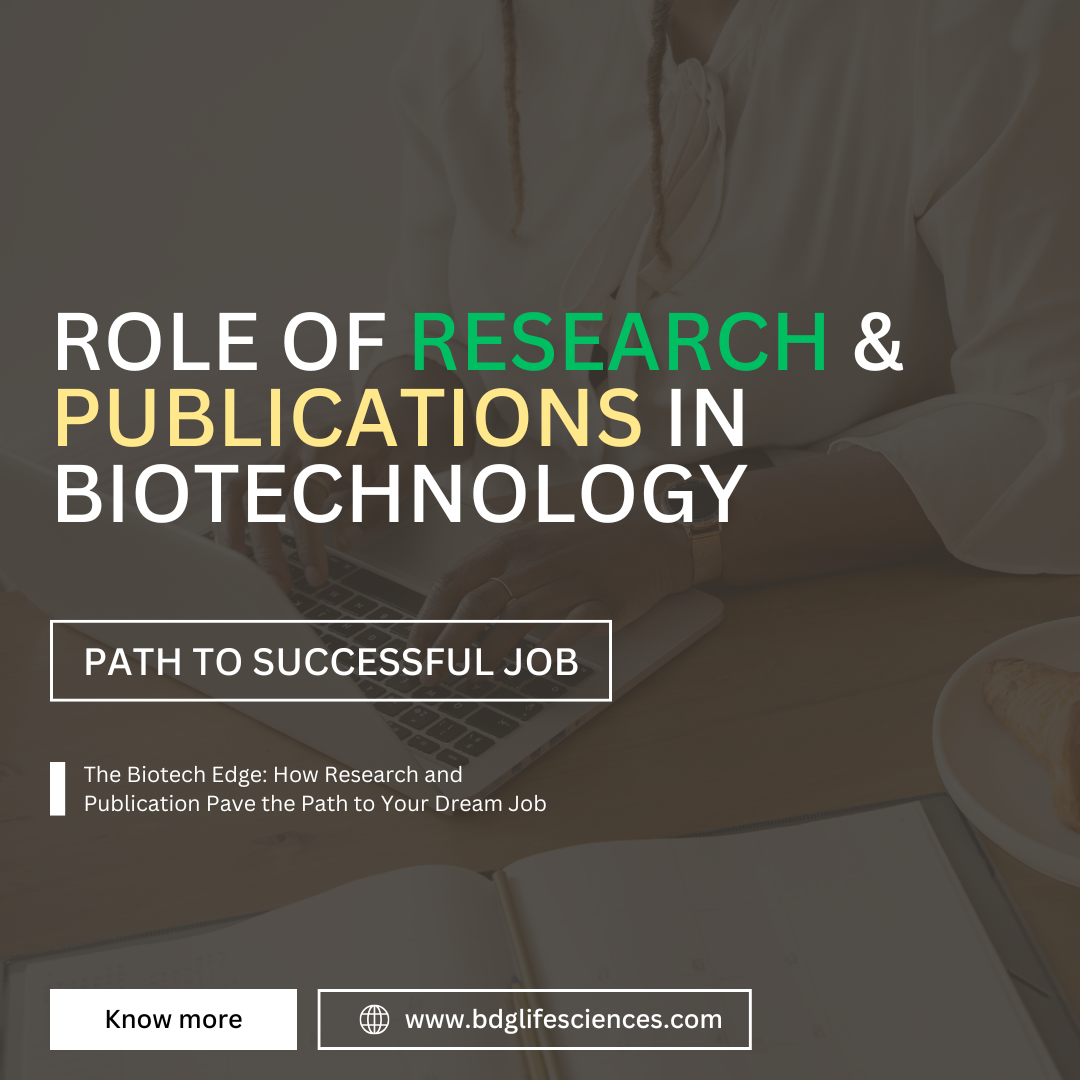
Blog

31 Oct , 2024
In the dynamic landscape of biotechnology, the nexus between research, publication, and career opportunities is unequivocal. For students venturing into this field, engagement in research and subsequent publication plays a pivotal role in shaping not just their academic journey but also in unlocking a myriad of doors for career advancements.
Biotechnology, a multidisciplinary domain amalgamating biology, chemistry, engineering, and technology, thrives on innovation. Research serves as the cornerstone in pushing the boundaries of this field, be it in pharmaceuticals, agriculture, environmental conservation, or healthcare. Hence, students' involvement in research during their academic tenure is instrumental in honing their skills, fostering critical thinking, and fostering innovation.
One of the fundamental reasons why research and publication are crucial for biotechnology students is the sheer breadth of areas it encompasses. From genomics and molecular biology to bioinformatics, biomedical engineering, and biopharmaceuticals, the field presents a rich tapestry of opportunities. Engaging in research allows students to delve deeper into these areas, contributing to the knowledge pool and potentially addressing real-world problems.
Moreover, publication acts as a beacon, illuminating the path towards career advancement. When students publish their research findings in esteemed journals or present them at conferences, it showcases their expertise, dedication, and contribution to the scientific community. This not only adds credibility to their academic profile but also demonstrates their potential as future leaders and innovators in the field.
Research and publication significantly augment the chances of securing good jobs for biotechnology students. Employers in this field often seek candidates who possess a strong research background, as it indicates the ability to tackle complex problems, think critically, and innovate. Companies engaged in biopharmaceuticals, genetic engineering, bioinformatics, or agricultural biotechnology value individuals with a demonstrated capacity for research and a track record of publications.
Key research areas in biotechnology that hold immense promise for students include:
Students delving into these areas through research projects gain valuable insights, practical experience, and the chance to make impactful contributions to these burgeoning fields.
Furthermore, research and publication amplify networking opportunities. Engaging in research often involves collaborations with professors, fellow students, and industry experts. This collaboration not only facilitates learning but also expands professional networks, opening doors to internships, job offers, or even entrepreneurial ventures.
In today's competitive job market, where academic qualifications often serve as the baseline, research and publication set candidates apart. They not only demonstrate a deep understanding of the subject matter but also display the capacity for independent thinking, problem-solving, and innovation – qualities highly sought after by employers in biotechnology and related industries.
Additionally, research experience enhances skill sets crucial for success in the job market. These skills include experimental design, data analysis, critical thinking, and effective communication – all essential in both academic and industrial settings.
To maximize the impact of research and publication on career prospects, students should consider:
In conclusion, for biotechnology students, the significance of research and publication cannot be overstated. Beyond academic fulfillment, these endeavors serve as catalysts for securing promising career paths. They enhance knowledge, skills, visibility, and networking opportunities, paving the way for a successful and impactful journey in the ever-evolving realm of biotechnology.
Enhance your career prospects through impactful publications. The Research Project Training Program by BDG LifeSciences Pvt. Ltd. offers novel research projects in Bioinformatics, aligning with current trends, employing unique teaching methods, and facilitating flexible online training, leading to internationally published outcomes—a valuable addition for job opportunities or academic advancement. You can view all the completed projects here. To view the video feedback of our previous events kindly visit our YouTube Channel. To view, the teams for current projects click here
